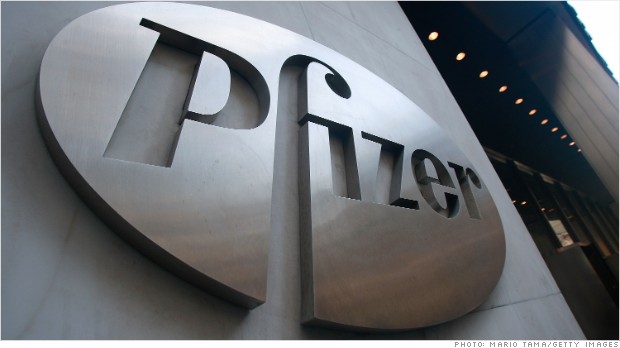
After making a failed bid for AstraZeneca in January, pharmaceutical heavyweight Pfizer is again pursuing a deal for its British rival that would rank among the largest in industry history.
Pfizer (PFE, Fortune 500) said it made contact with AstraZeneca (AZN) on Saturday to renew acquisition discussions, the latest potential pairing in an industry gripped by a new wave of consolidation.
U.S.-based Pfizer said that AstraZeneca declined to engage when contacted over the weekend.
If a transaction is executed, Pfizer said the resulting company would be incorporated in Britain, but headquartered in New York and listed on the NYSE.
"Pfizer is currently considering its options with respect to AstraZeneca," the company said in a statement. "Pfizer believes the strategic, business and financial rationale for a transaction is compelling."
The proposal floated in January would have paid AstraZeneca owners £46.61 ($76.62) per share, a premium of around 30% over the company's stock price at the time. At that price, the deal would have been worth £58.7 billion, or around $98.6 billion.
A deal of that scale would represent the biggest foreign takeover of a British company. It would also be the second biggest pharmaceutical deal after Pfizer's $112 billion purchase of Warner Lambert in 2000.
AstraZeneca said Monday that the January proposal "very significantly undervalued" the company and its prospects, and in the absence of a new "specific and attractive" offer it was not ready to resume talks.
Pfizer said Monday it remains willing to pay a "significant premium" over the company's closing share price on April 17.
It now has a month to announce its intention to make an offer, or walk away.



